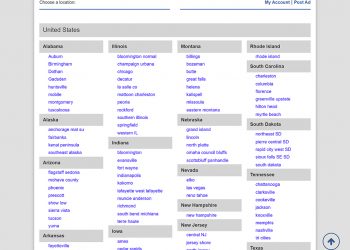The Unique Tapestry of Human Personalities
Each of us, as humans, is unique, characterized by distinct thought processes, behaviors, and personalities. These variances are integral to deciphering our cognitive style – the distinctive mode through which we think, perceive, and retain information. Embarking on a self-discovery voyage, a cognitive styles test emerges as a significant guidepost, delivering instant personalized feedback that charts the path for customized self-development.
Psychometrics, a specialized branch of psychology, utilizes statistical methods to gauge an individual’s cognitive style, personal values, personality traits, and various other psychological facets. This discipline has ushered in the development of validated instruments, such as the Big Five personality assessment. By broadly covering personality variances — openness, conscientiousness, extraversion, agreeableness, and neuroticism — this tool offers an extensive view of an individual’s personality.
Self-Assessments: The Catalysts for Self-Awareness
Self-assessments prove extraordinarily advantageous when offering immediate personalized feedback. This instantaneity facilitates action when the insights are most potent, laying the groundwork for impactful change. Personalized feedback engenders a sense of responsibility and galvanizes us to act on our areas of growth. It’s akin to having a personal mentor who comprehends our strengths and limitations and directs us towards our betterment.
Furthermore, psychometric instruments yielding instant personalized feedback have been validated through rigorous scientific investigation. This validation and reliability ensure the provision of accurate insights that truly encapsulate our cognitive styles and personality differences. This vetted feedback empowers us to make well-informed decisions regarding our personal and professional lives, thereby bolstering our self-development.
The immediate feedback from self-assessments is indispensable for self-development. It acts as a reflective surface, exposing our tendencies, inclinations, and prejudices. The behavioral science anchoring these assessments elevates them beyond simple questionnaires. They penetrate our subconscious, unearthing facets of ourselves of which we might be oblivious.
Grasping Your Cognitive Styles
Appreciating our cognitive style significantly aids our self-awareness. Our cognitive style, whether analytical, intuitive, or a blend of both, is our exclusive manner of perceiving and interacting with the world. It delineates how we assimilate information, solve problems, and approach learning — in essence, it is our cognitive signature.
Recognizing our cognitive style is akin to receiving a map of our mental terrain. This awareness proffers invaluable insights into our thought process and reasoning, enabling us to modify our methods if required. A firm understanding of our cognitive style allows us to tailor our environments, tasks, and even communication to suit our cognitive predilections. This tailoring can lead to increased effectiveness, satisfaction, and success in various life areas, from work to personal relationships.
Emotional Intelligence
Emotional intelligence (EQ), another crucial facet of self-development, has been spotlighted as a key determinant of personal and professional success in recent years. It pertains to our ability to recognize, understand, and manage not just our own emotions but those of others as well. It is about empathy, self-awareness, self-regulation, motivation, and social skills.
Emotional intelligence isn’t just about being “in touch” with our feelings. It involves the application of emotions to tasks like problem-solving and thinking. It also refers to our ability to control emotions — both our own and those of others. This can mean managing our emotional reactions to situations, managing the emotional climate of a team or group, or influencing the emotions of others.
Integrating EQ in Your Personal Growth Journey
To navigate this emotional landscape effectively, emotional intelligence assessments are an essential tool for growth. Like a lighthouse guiding ships in a storm, these assessments provide insightful and immediate personalized feedback about our emotional aptitude. They identify areas of strength and weakness in our emotional intelligence, providing a roadmap for further personal growth.
EQ assessments gauge our abilities in various areas such as emotional awareness, the ability to harness emotions to direct cognitive activities like problem-solving and creative thinking, and the capacity to manage emotions, which includes regulating our own emotions and cheering up or calming down other people.
Just as cognitive styles tests help us understand our preferred way of processing information, EQ assessments bring clarity about how we handle our emotions and those of others in different situations. These insights can lead to improved interpersonal relationships, better decision-making processes, enhanced leadership skills, and increased personal well-being.
In the broader context of self-development, integrating emotional intelligence can have transformative effects. With the insights from an EQ assessment, individuals can work on becoming more adaptable to stressful situations, enhancing their communication with others, and building resilience against emotional distress. This holistic approach of cognitive and emotional self-awareness equips us to lead more fulfilling lives.












